GNC L-Arginine 1000mg 90’s Imported USA
GNC L-Arginine 1000mg: Overview
GNC L-Arginine 1000mg is a dietary supplement designed to provide the amino acid L-arginine, which is essential for various physiological functions in the body.
Key Features
- Dosage: Each serving contains 1000mg of L-arginine.
- Form: Available in easy-to-swallow caplets.
- Quantity: Each bottle contains 90 caplets.
Benefits of L-Arginine
1. Improved Blood Flow
L-arginine is a precursor to nitric oxide, which helps relax and widen blood vessels, potentially enhancing circulation and overall cardiovascular health.
2. Enhanced Exercise Performance
Athletes often use L-arginine to improve blood flow to muscles, which may lead to better performance and endurance during workouts.
3. Wound Healing Support
L-arginine is involved in collagen synthesis, which is crucial for tissue repair and wound healing, potentially speeding up recovery processes.
4. Immune System Boost
This amino acid may support immune function by promoting the production of immune cells, helping the body fend off infections.
Usage and Recommendations
- Suggested Use: Typically, it is recommended to take 1-2 caplets daily, preferably with meals. Always follow the specific instructions on the product label or consult a healthcare professional.
- Storage: Keep in a cool, dry place away from direct sunlight.
Original price was: ₨8,000.00.₨6,999.00Current price is: ₨6,999.00.
Description
GNC L-Arginine 1000mg: Overview
GNC L-Arginine 1000mg is a dietary supplement designed to provide the amino acid L-arginine, which is essential for various physiological functions in the body.
Key Features
- Dosage: Each serving contains 1000mg of L-arginine.
- Form: Available in easy-to-swallow caplets.
- Quantity: Each bottle contains 90 caplets.
Benefits of L-Arginine
1. Improved Blood Flow
L-arginine is a precursor to nitric oxide, which helps relax and widen blood vessels, potentially enhancing circulation and overall cardiovascular health.
2. Enhanced Exercise Performance
Athletes often use L-arginine to improve blood flow to muscles, which may lead to better performance and endurance during workouts.
3. Wound Healing Support
L-arginine is involved in collagen synthesis, which is crucial for tissue repair and wound healing, potentially speeding up recovery processes.
4. Immune System Boost
This amino acid may support immune function by promoting the production of immune cells, helping the body fend off infections.
Usage and Recommendations
- Suggested Use: Typically, it is recommended to take 1-2 caplets daily, preferably with meals. Always follow the specific instructions on the product label or consult a healthcare professional.
- Storage: Keep in a cool, dry place away from direct sunlight.
Key Ingredients of GNC L-Arginine 1000mg
GNC L-Arginine 1000mg primarily contains the following key ingredients:
1. L-Arginine
- Function: An essential amino acid that serves as a precursor to nitric oxide, which is important for maintaining healthy blood vessel tone and improving blood flow.
2. Other Ingredients
- Hydroxypropylcellulose: Used as a binding agent in the caplets.
- Microcrystalline Cellulose: A common filler and stabilizer in dietary supplements.
- Silicon Dioxide: Acts as an anti-caking agent to prevent clumping.
- Stearic Acid (Vegetable Source): Used as a lubricant in the manufacturing process.
- Magnesium Stearate (Vegetable Source): Another lubricant that aids in the manufacturing of the caplets.
L-Arginine can interact with various medications, which may affect their efficacy or lead to adverse effects. Here are the known interactions:
Major Interactions
- Blood Pressure Medications: L-Arginine may lower blood pressure. When taken with antihypertensive drugs (like ACE inhibitors, ARBs, or beta-blockers), it could lead to excessively low blood pressure. Close monitoring is advised when combining these medications.
Moderate Interactions
- Sildenafil (Viagra): Both L-Arginine and sildenafil can lower blood pressure. While many individuals tolerate this combination, caution is recommended due to the potential for hypotension.
- Anticoagulants and Antiplatelet Drugs: L-Arginine may slow blood clotting. When used with these medications, there is an increased risk of bruising and bleeding.
- Diabetes Medications: L-Arginine can lower blood sugar levels. Combining it with diabetes medications might lead to hypoglycemia, necessitating careful monitoring of blood sugar levels.
Other Notable Interactions
- Isoproterenol: This medication lowers blood pressure, and combining it with L-Arginine may further decrease blood pressure levels.
- Potassium-Sparing Diuretics: L-Arginine can increase potassium levels, which, when combined with certain diuretics, may lead to hyperkalemia (excess potassium in the blood).
Mechanism of Action of L-Arginine
L-Arginine is an amino acid that plays a crucial role in several physiological processes in the body. Its primary mechanism of action revolves around its conversion to nitric oxide (NO), which has significant implications for vascular health and other bodily functions.
1. Nitric Oxide Production
- Precursor Role: L-Arginine is an essential precursor for the synthesis of nitric oxide, a potent vasodilator. The enzyme nitric oxide synthase (NOS) catalyzes the conversion of L-arginine to nitric oxide and citrulline.
- Vasodilation: Nitric oxide helps relax and widen blood vessels, improving blood flow and reducing blood pressure. This mechanism is particularly beneficial for cardiovascular health, as it enhances oxygen and nutrient delivery to tissues.
2. Removal of Ammonia
- Detoxification: L-Arginine assists in the urea cycle, where it helps remove ammonia from the body, a waste product of protein metabolism. This detoxification process is vital for maintaining metabolic balance and preventing toxicity.
3. Immune Function
- Immune System Support: L-Arginine is involved in the production of certain immune cells and cytokines, enhancing the body’s immune response. It may help in wound healing and tissue repair by promoting the growth of new tissues.
4. Muscle Protein Synthesis
- Athletic Performance: Due to its role in nitric oxide production, L-Arginine may support muscle blood flow during exercise, potentially improving performance and recovery in athletes and bodybuilders.

Chemical Structure of L-Arginine
- Chemical Formula: C₆H₁₄N₄O₂
- Molecular Weight: Approximately 174.2 g/mol
Structural Representation
The structural formula of L-Arginine can be depicted as:
textH2N
|
H2N-C-COOH
|
(CH2)3
|
NH2
Description
- Amino Group: L-Arginine contains two amino groups (-NH₂) and one carboxyl group (-COOH), which classifies it as an amino acid.
- Side Chain: The side chain consists of a three-carbon chain connected to a terminal amino group, which is characteristic of L-Arginine.
L-Arginine supports cardiovascular health through several mechanisms primarily related to its conversion into nitric oxide (NO), a vital molecule for vascular function. Here’s how it works:1. Nitric Oxide Production
L-Arginine is the sole substrate for the production of nitric oxide via the enzyme nitric oxide synthase (NOS). Nitric oxide is a potent vasodilator that helps relax and widen blood vessels, which improves blood flow and reduces blood pressure. This mechanism is crucial for maintaining healthy cardiovascular function and preventing conditions like hypertension and atherosclerosis.
2. Improvement of Endothelial Function
L-Arginine supplementation has been shown to enhance endothelial function, which is essential for the regulation of vascular tone and blood flow. Improved endothelial function can lead to better circulation and reduced risk of cardiovascular diseases, including coronary artery disease and peripheral artery disease.
3. Blood Pressure Regulation
Clinical studies indicate that L-Arginine can help lower blood pressure in individuals with elevated levels. For instance, a study showed significant reductions in both systolic and diastolic blood pressure in participants who received L-Arginine supplementation compared to a placebo group. This effect is particularly beneficial for those with hypertension or at risk for heart-related issues.
4. Reduction of Cardiovascular Risk Factors
L-Arginine may contribute to lowering levels of homocysteine, an amino acid linked to an increased risk of cardiovascular diseases. By reducing homocysteine levels, L-Arginine can help mitigate one of the risk factors associated with heart disease.
5. Support for Heart Muscle Function
L-Arginine has been associated with improved heart muscle function, particularly in patients with heart failure or those undergoing treatments for cardiovascular conditions. By enhancing blood flow and oxygen delivery to the heart, L-Arginine may help alleviate symptoms of chest pain (angina) and improve overall cardiac health.
Precautions
- Maintain strict hygiene practices when handling, preparing and serving foods to prevent cross-contamination
- Ensure all staff are familiar with individual dietary requirements and action plans for children with specific needs
- Communicate regularly with families about any changes to dietary needs and update records accordingly
- Implement safeguards to prevent serving the wrong food or breast milk to children
- Avoid eating out at restaurants and cafes to reduce contact with others and lower the risk of COVID-19 exposure
Dietary Restrictions
- Gluten-free: Avoid wheat, barley, rye and other gluten-containing grains. Use alternatives like nut flours, gluten-free breads and flours
- Lactose-free: Avoid milk and dairy products. Choose lactose-free milk and dairy or dairy-free alternatives
- Nut allergies: Avoid all nuts and nut products
- Vegetarian: Exclude all meat and poultry. Include plant-based proteins like legumes, tofu, tempeh, etc.
- Vegan: Exclude all animal products including meat, poultry, fish, dairy, eggs, honey, etc. Focus on plant-based foods
- Kosher: Adhere to Jewish dietary laws. Avoid pork, shellfish, and mixing meat and dairy. Use kosher-certified ingredients and utensils
- Halal: Follow Islamic dietary guidelines. Avoid pork, alcohol, and meat that is not slaughtered according to halal practices
- Low FODMAP: Restrict fermentable carbs like wheat, dairy, legumes, certain fruits and vegetables to manage digestive issues
Dosage
For GNC L-Arginine 1000mg, the recommended dosage is as follows:
- Suggested Use: Take one to three caplets daily as a dietary supplement. It is advisable to take them with meals for optimal absorption. Always consult a healthcare provider before starting any new supplement regimen, especially if you are pregnant, nursing, or have any underlying health conditions.
Storage
- Storage Conditions: Store the caplets in a cool, dry place away from direct sunlight and moisture. Ensure the container is tightly sealed to maintain product integrity and potency.
Reviews
While specific user reviews were not included in the search results, GNC products, including L-Arginine, generally receive positive feedback for their quality and effectiveness. Users often highlight benefits such as improved circulation, enhanced exercise performance, and support for cardiovascular health. However, individual experiences may vary, and it’s recommended to check customer reviews on retail sites for more personalized insights.

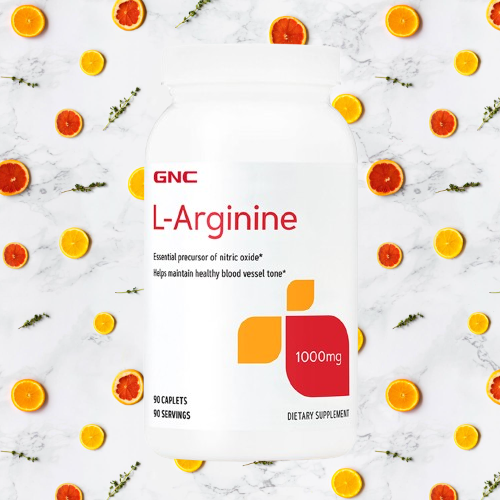
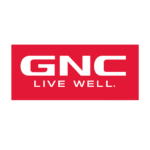
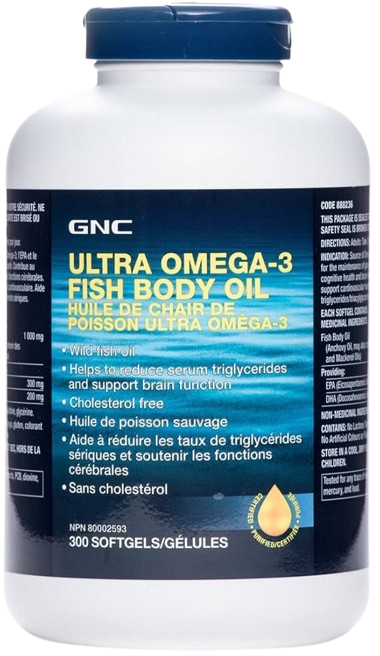
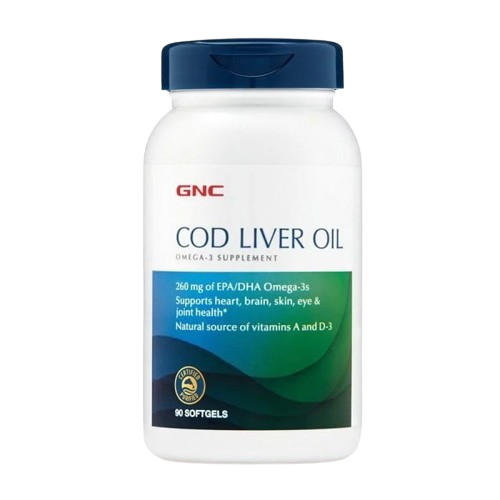
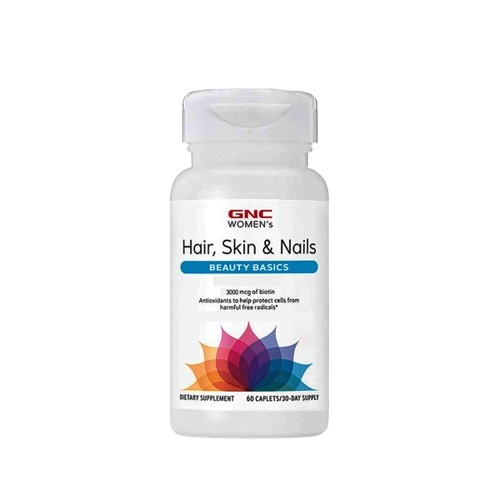
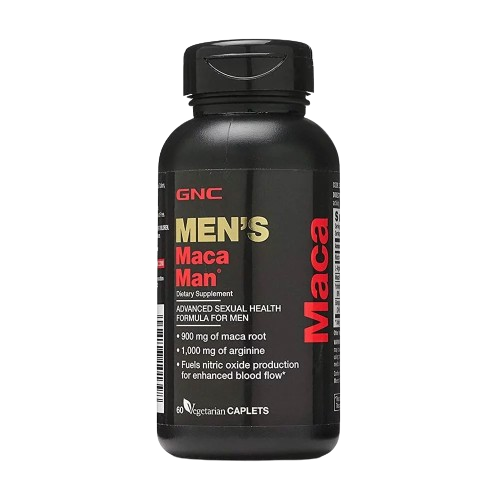

Reviews
There are no reviews yet.